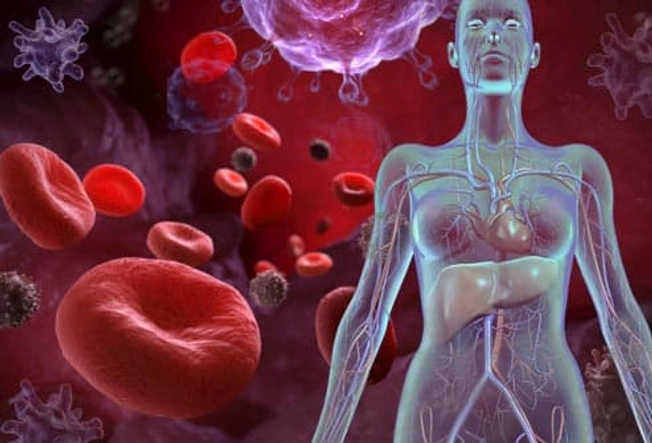Slideshow: A Visual Guide to Myalgic Encephalomyelitis/Chronic Fatigue Syndrome (ME/CFS)


What Is Myalgic Encephalomyelitis/Chronic Fatigue Syndrome (ME/CFS)?
ME/CFS is a complex illness. The severity is variable, but the symptoms are real. The condition can be completely incapacitating and includes debilitating fatigue along with other symptoms. The fatigue is severe enough to interfere with daily activities and is not relieved by bed rest. Though there is no cure for ME/CFS, improvement and recovery are possible with comprehensive treatment. This condition is also known as systemic exertional intolerance disease (SEID).

ME/CFS Puzzles
ME/CFS can now be diagnosed by looking for a pattern of specific symptoms . But the causes of the illness are still a mystery. Possible culprits include a faulty immune system, infections, or alterations in body chemistry, particularly the chemistry by which the body’s cells make energy.

ME/CFS Symptoms: Intense Fatigue
Everyone feels sluggish now and then. The difference with ME/CFS is that the fatigue is overwhelming and has lasted for at least 6 months. It may get worse after physical or mental exertion, and a full night's sleep provides no relief. The fatigue is often accompanied by other troubling symptoms, such as chronic pain.

ME/CFS Symptoms: Recurring Pain
Many people with ME/CFS develop recurring pain, including headaches, sore throat, muscle pain, and joint pain. The joints may hurt without showing signs of redness or swelling. The cause of these symptoms is not well understood, but the pain can often be managed through medication or physical therapy.

Other Symptoms of ME/CFS
Beyond fatigue and pain, people with ME/CFS may experience:
- Memory problems
- Trouble concentrating
- Sleep disturbances, particularly awakening unrested
- Weakness or dizziness
- Depression

Who Is at Risk?
An estimated 836,000 Americans have ME/CFS. Most studies find that women are more likely than men to develop the illness. Although people of any age can get ME/CFS, it occurs most frequently in people in their 40s and 50s. There may be a genetic component, but there is no evidence that ME/CFS is contagious.

ME/CFS in Children and Teens
ME/CFS is very rare in children and only slightly more common in teenagers. The good news is young people with ME/ are more likely to improve than older patients. If your child is diagnosed with ME/CFS, consult a specialist to create an individualized exercise and management program. Find constructive ways for your child to cope, and seek out support groups.

Diagnosing ME/CFS
There are no accurate diagnostic tests as yet for ME/CFS, but your health care team may run blood tests or brain scans to rule out other conditions. ME/CFS is diagnosed when you have a moderately severe degree of:
- Severe fatigue that has lasted more than 6 months, is not explained by another condition and is not substantially alleviated by rest AND.
- Post-exertional malaise (Worsening of ME/CFS symptoms after physical or mental activity that would not have caused a problem before illness. This is known as post-exertional malaise (PEM) AND
- Unrefreshing sleep/usually awakening unrested
AND
- Cognitive impairment and/or
- Orthostatic intolerance- feeling much better when laying down compared to standing up

How ME/CFS Impacts Daily Life
ME/CFS tends to follow a cyclical course. You may experience periods of intense fatigue followed by periods of well-being. It's vital not to overdo it when you're feeling well, because this may trigger a relapse. Most people with ME/CFS experience symptoms that worsen after strenuous physical or mental activity. Work with your health care team to determine the right activity level for you.

Treatment Options for ME/CFS
There is no cure for ME/CFS, and no prescription drugs have been developed specifically for its treatment. There are treatments to help reduce your symptoms (such as pain or poor quality sleep). Work with your health care team to develop coping strategies, such as managing your activity level and taking medications to control symptoms. Focus on feeling better rather than feeling "normal."

Medications
Medications are primarily used to relieve symptoms, such as sleep problems and chronic pain. Some medications, such as tricyclic antidepressants, can reduce pain and improve sleep with just one pill. (In the low doses used, these drugs do not treat depression, just sleep and pain). Non-steroidal anti-inflammatory drugs (NSAIDs) can help with pain. Be sure to ask your doctor about the benefits and side effects of any drugs you take, even if they are over the counter.

Counseling
A counselor can help you to cope with the burdens of your illness. Although some studies have concluded that a particular form of therapy called cognitive behavioral therapy (CBT) may be helpful, serious questions have been raised about the conduct of the largest of these studies. It has not been proven or disproven that CBT is beneficial.

Complementary Therapies
Complementary treatments -- sometimes called alternative therapies -- – appear to have helped some people manage the pain caused by ME/CFS. These include stretching therapies, toning exercises, massage, tai chi, yoga, hydrotherapy, and relaxation techniques. Acupuncture may also treat pain. Make sure to seek out qualified practitioners who are knowledgeable about ME/CFS.

Herbs and Supplements
Talk with your doctor about which supplements, if any, are helpful and safe for you. A few studies have suggested that supplements rich in omega-3 fatty acids, like fish oil, may be helpful in people with ME/CFS. Remember that supplements may interact negatively with prescribed medications, so check with your doctor before starting them.

Scam Alert
Many nutritional supplements and vitamins are targeted toward people with ME/CFS. Keep in mind two things. First, the manufacture of supplements is not regulated to the same degree as prescription medications; as a result, some can contain dangerous impurities. Second, virtually none of the supplements have been tested in scientifically rigorous studies involving large numbers of people.

ME/CFS and Diet
Doctors recommend a well-balanced diet for people with ME/CFS, but no specific dietary strategy has been widely accepted. Foods rich in essential fatty acids (particularly omega-3 fatty acids)—for example, nuts, seeds, and coldwater fish—may reduce fatigue. Some people with ME/CFS notice their symptoms are triggered by certain foods or chemicals, including refined sugar, caffeine, and alcohol. If you notice changes with any of these, you should avoid them.

ME/CFS and Sleep
Most people with ME/CFS experience sleep disturbances that leave them awakening unrested almost every morning. The most frequent abnormality is frequent awakening for no apparent reason. In addition, people with ME/CFS may have difficulty falling asleep, restless legs and vivid dreaming. To create healthy sleep habits, establish a regular bedtime routine (going to bed and awakening at about the same time every day).

ME/CFS and Depression
ME/CFS is not a psychiatric illness, nor a form of depression. However, up to half of the people with ME/CFS become depressed during the course of their illness. This may be the result of the difficulty in adjusting to life with a debilitating, chronic condition. If a person with ME/CFS also develops depression, it generally responds well to treatment. Getting it under control can make ME/CFS easier to cope with. If you have thoughts of suicide, call the Suicide & Crisis Lifeline at 988 or go to the emergency room.

Tips for Family Members
Chronic illnesses like ME/CFS may impact the whole family. Consult with a mental health professional to learn how to cope with changes in family dynamics. Don't expect your loved one to "snap out of it" and return to their usual activities. Try to be supportive, because emotional health is vital for anyone coping with ME/CFS.

Outlook for ME/CFS
The percentage of people who make a full recovery from ME/CFS is not known. But some people enjoy long periods of remission, especially by learning to manage their activity levels - keeping active, but not pushing themselves too hard.